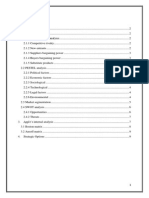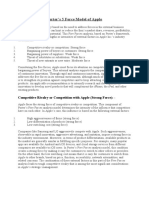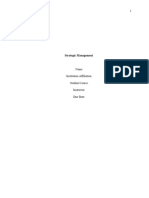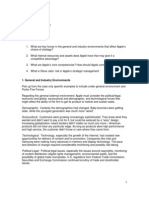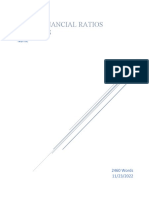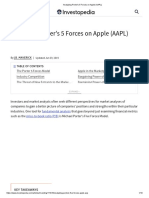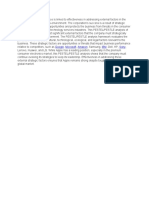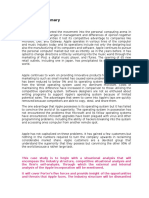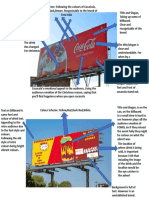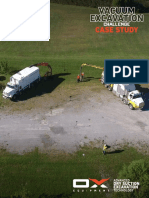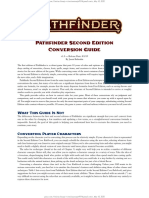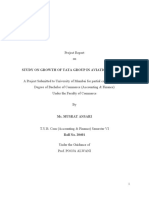0% found this document useful (0 votes)
78 views6 pagesApple's Strategic Vulnerabilities
This document analyzes Apple's strategic vulnerability through PESTEL and five forces frameworks, highlighting factors such as political, economic, and competitive pressures. It suggests that Apple should invest in research and development and diversify its product portfolio to mitigate these vulnerabilities. The conclusion emphasizes the importance of addressing these external factors to maintain competitive advantage.
Uploaded by
markov419dCopyright
© © All Rights Reserved
We take content rights seriously. If you suspect this is your content, claim it here.
Available Formats
Download as DOCX, PDF, TXT or read online on Scribd
0% found this document useful (0 votes)
78 views6 pagesApple's Strategic Vulnerabilities
This document analyzes Apple's strategic vulnerability through PESTEL and five forces frameworks, highlighting factors such as political, economic, and competitive pressures. It suggests that Apple should invest in research and development and diversify its product portfolio to mitigate these vulnerabilities. The conclusion emphasizes the importance of addressing these external factors to maintain competitive advantage.
Uploaded by
markov419dCopyright
© © All Rights Reserved
We take content rights seriously. If you suspect this is your content, claim it here.
Available Formats
Download as DOCX, PDF, TXT or read online on Scribd
/ 6




















